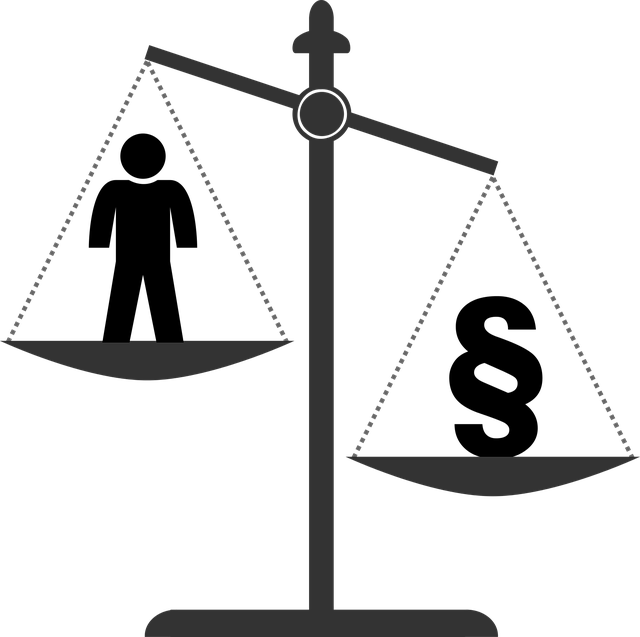Understanding Oregon criminal law is vital for defendants and lawyers. The state's structured process involves arrest to appeals, with specific rules at each stage. Defendants enjoy rights like counsel, silence, and confrontation under Oregon law, crucial for effective defense. Appeals require identifying errors, crafting legal arguments, and adhering to technical filing deadlines. Misconceptions about appeals, such as automatic reversals, must be dispelled; success depends on procedural and legal violations. Experienced legal counsel is essential for navigating this complex process.
Seeking justice in Oregon’s criminal justice system demands understanding your rights and navigating complex procedures. This comprehensive guide delves into the intricacies of Oregon criminal law, focusing on defense hearings and appeals. Learn how to exercise your constitutional rights effectively during crucial court appearances. Discover the steps involved in appealing a conviction, along with strategies to challenge evidence and legal errors. Arm yourself with knowledge to navigate this intricate process, ensuring the best possible outcome for your case.
- Understanding Oregon Criminal Law Procedures
- Your Rights During Criminal Defense Hearings
- Navigating Appeals: Steps and Strategies
- Common Misconceptions About Legal Appeals
Understanding Oregon Criminal Law Procedures

In Oregon, understanding the state’s criminal law procedures is paramount for both defendants and their legal representatives. The state follows a structured legal process that includes arrest, initial appearances, pretrial hearings, trials, and appeals, each with specific rules and timelines. Knowledge of these procedures empowers individuals to navigate the criminal justice system more effectively.
Oregon criminal law dictates the rights and responsibilities of all parties involved in a criminal case. It outlines the steps for charging suspects, conducting investigations, gathering evidence, and presenting cases in court. Familiarity with this legal framework ensures that defendants are aware of their entitlements, such as the right to counsel, while also enabling attorneys to mount robust defenses on their clients’ behalves.
Your Rights During Criminal Defense Hearings

During criminal defense hearings in Oregon, individuals accused of a crime have specific rights guaranteed by the state’s criminal law. These rights are essential to ensure a fair and just process. Accused persons are entitled to legal counsel, allowing them to seek guidance from an experienced lawyer who understands Oregon criminal law. This counsel plays a pivotal role in protecting their interests and guiding them through the complexities of the legal system.
Furthermore, the accused have the right to remain silent, ensuring that any statements made cannot be used against them in court. They can also confront witnesses, challenge evidence, and present their own defense, leveraging Oregon’s rules of evidence to build a robust case. Understanding these rights is crucial for anyone facing criminal charges, as it empowers them to actively participate in their defense and navigate the legal process effectively.
Navigating Appeals: Steps and Strategies

Navigating appeals in Oregon criminal law can be a complex process, but understanding the steps and strategies involved is crucial for successful outcomes. The initial step begins with evaluating the case to identify potential grounds for appeal. This includes assessing procedural errors, such as violations of constitutional rights or improper evidentiary handling, which could have led to an unfair trial.
Once identified, the next phase entails preparing a comprehensive appeal brief. This document should articulate the legal basis for each claim, supported by relevant case law and statutory provisions. Effective advocacy requires meticulous attention to detail, ensuring all procedural requirements are met according to Oregon criminal law. Timely filing is paramount, as missed deadlines can halt further proceedings.
Common Misconceptions About Legal Appeals

Many individuals accused of crimes in Oregon hold misconceptions about legal appeals, often due to a lack of understanding of the process and the complexities of Oregon criminal law. One common misconception is that appealing a conviction automatically leads to a reversal or a lighter sentence. However, it’s crucial to recognize that an appeal does not guarantee a favorable outcome; it involves a thorough review of the case by a higher court, examining procedural errors, legal issues, and factual discrepancies.
Another pervasive belief is that all appeals are based on proving innocence, which is not entirely accurate. Appeals can be successful even if the defendant was found guilty because they may succeed in demonstrating violations of their rights under Oregon criminal law, such as improper evidence handling or insufficient legal representation. This process requires meticulous preparation and a comprehensive understanding of both the facts of the case and the applicable laws, making it a complex task that necessitates the expertise of experienced legal counsel.






